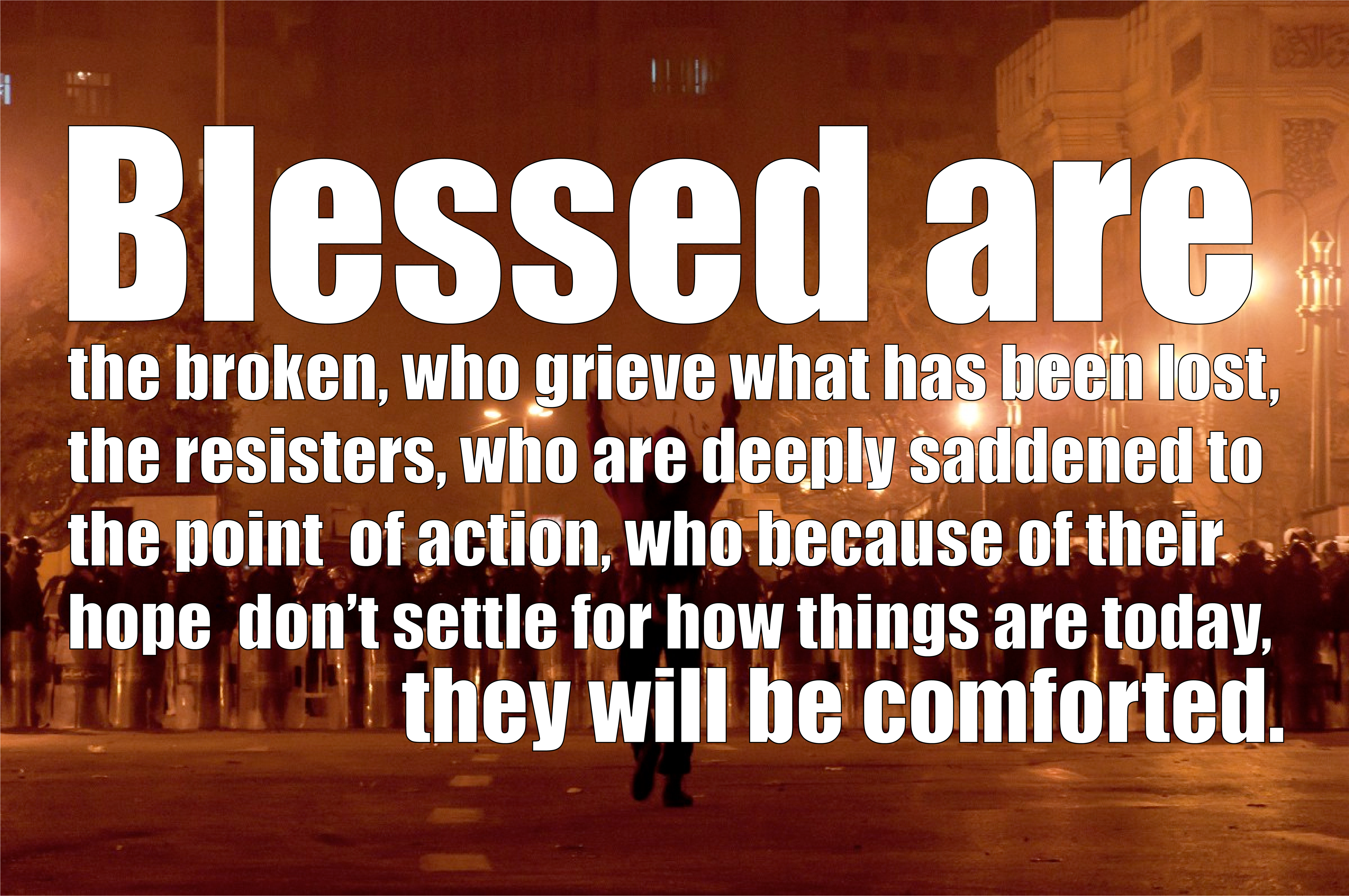
Matthew 4:23-5:4 & Isaiah 61:1-4, 8, 10-11
The Beatitudes (Matthew 5:1-12) are identified as the essential teaching of Jesus. Recorded in Matthew, within the larger section of the Sermon on the Mount (Matthew 5-7) they have always been taken seriously in the life of the Church but along a line ranging from literal to metaphorical, from concrete pragmatic directives to poetic unrealistic hopes of how heaven is. They present an inherent tension between now, and what is to come, as each beatitude contains the first verb in the present tense, with a dependent clause articulated in the future tense.
Jesus speaks to a crowd made up of his disciples and other people who had come to him for social acceptance, healing, and deliverance. Here in 5:4 he talks of those who mourn today as those who will be comforted in God’s-kingdom-future. The word for mourning [penthountes] points to the impossible-to-hide grieving at the death, or separation from someone: widows, parents, exiles, the oppressed, enslaved, those afflicted by misfortune. It’s less sadness or weeping than it is prayers of lament over the hurt in the world. Such lament grows out of an awareness of the difference between what is and what God wants for the world. The word for comfort [parakaleo] is related to prayer and the asking of help through which comfort and consolation is given. The Greeks and Romans generally thought of mourning and consolation as useless, something done by the uneducated and unthoughtful. The wise simply accept their lot in life. Jesus on the contrary promises that oppression and mourning are not the final words.
Jesus then speaks not just to those in tears, but to those who are broken both in and by grief: mourning the death of loved ones, their misfortune, or enslavement, the oppression of our world by powers that destroy, divide and delegitimize human life. Jesus speaks to those seen as weak whiners as active resisters, who look to the power of God’s future-and-coming-kingdom here and now. The prophet Isaiah talks of life-transforming freedom. John in Revelation casts a vision of Jesus wiping away every tear. Jesus here seems to be saying that those who hope is something better, in God’s justice, who can see this upside-down-world right-side-up in God’s power are not foolish, but faithful, and will not be let down.
Questions for the practice of Examen & Contemplation
- What grabs your attention in this reading?
- How, when, have you experienced mourning or lament over the way in which the world is?
- How do you struggle to trust that God will have the final word, not oppression and mourning?
- Where do you glimpse God’s consolation already at work in the world?
Download a text study sheet that we use in our class @CAPCOakland HERE.